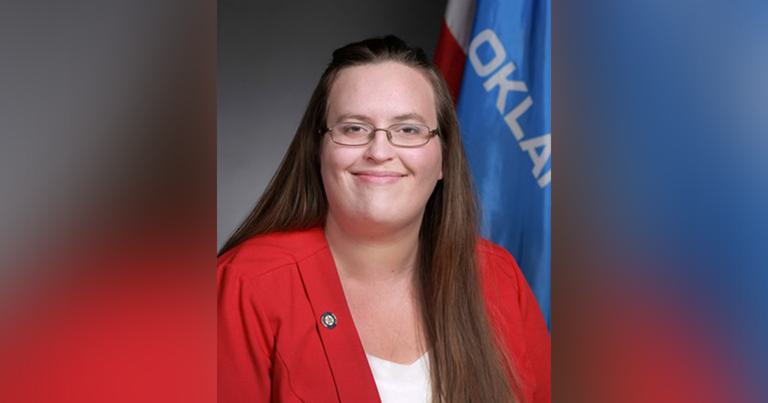
Budget & Tax
Ray Carter | May 22, 2019
Democrats’ anti-savings argument: People are ‘dying’
Ray Carter
Urging lawmakers to spend rather than save money, Democrats painted an apocalyptic picture of Oklahoma’s future if government spending is not increased further.
“Emergency savings is always a good measure,” said Sen. Allison Ikley-Freeman, D-Tulsa. “But it’s a different thing to save money when your home is in pre-foreclosure. And our state has been struggling for many years. We have starved our core services. We have many infrastructural needs. People are dying in the state of Oklahoma, and we’re putting money in savings for another day, for ‘just in case.’”
Those comments were made during debate over Senate Bill 1076, which places roughly $200 million into the state’s Revenue Stabilization Fund.
Sen. Kay Floyd, D-Oklahoma City, noted the state’s Rainy Day Fund is expected to have $800 million soon.
“That’s a substantial savings account to have,” Floyd said. “To add an additional $200 million when we still have needs in this state does not make fiscal sense to me.”
She noted the state has $14 billion in real estate and property, and said more needs to be spent on upkeep of those properties.
“This is like having a home with a bad roof,” Floyd said. “If we don’t fix the roof, then it caves in and then we get water damage and the problems just get worse and worse and worse.”
While lawmakers are setting aside $200 million of this year’s surplus, state appropriations have nonetheless topped $8 billion for the first time and the K-12 appropriation was more than $3 billion for the first time.
Sen. John Michael Montgomery, a Lawton Republican who carried SB 1076 on the Senate floor, warned lawmakers the existing level of state savings is far less than what recent history has shown is needed. He noted Oklahoma’s economy and associated state tax collections remain subject to boom-and-bust cycles.
“We like to talk about ‘top 10’ around here. We rank in the top 10 for most volatile sources of revenue,” Montgomery said. “And so our needs, quite frankly, to be able to provide stable revenue, to have cash on hand in emergencies, is frankly a little bit higher than other states might experience.”
Montgomery noted the Rainy Day Fund has proven “insufficient” through the years.
In the 2008 state budget year, he noted the state’s general revenue fund held $6 billion. The next year it held $5.3 billion. By 2010, the general revenue fund held just $4.5 billion.
“Our Rainy Day Fund had a whopping $590 million in it to account for these multi-billion-dollar shortfalls,” Montgomery said. “As we went into this most recent downturn, same picture essentially.”
In the 2015 state budget year, the general revenue fund held $5.5 billion. In 2016, that figure had fallen to $5 billion. By 2017, the general revenue fund held just $4.8 billion.
“Our Rainy Day Fund had a whopping $535 million in it,” Montgomery said. “That is so completely unacceptable.”
Democrats waived off those concerns.
“Things are better now,” said Sen. J.J. Dossett, D-Owasso. “I don’t believe we’ll have another economic downturn over the next few years. It’s just too early to start creating new savings accounts and putting money in new savings accounts.”
But Sen. Micheal Bergstrom, R-Adair, said lawmakers need to do a better job of long-range planning.
“I know the last couple of years that I was here, we were pulling funds out of the Rainy Day Fund and we still had significant deficits as we had our revenue failures,” Bergstrom said. “I know that didn’t solve our fiscal situation because it was not sufficiently funded. The Legislature, prior to that point, had not sufficiently put the funds away to protect our state and our citizens from having to suffer significant cuts in our budgets.”
Although the state economy is now in recovery, he noted another economic downturn is inevitable.
“Education, DHS funding, a variety of core services have had to suffer these cuts, and over the years we’ve had the funding levels going up and down and up and down,” Bergstrom said. “By voting for this and continuing to build our reserve fund, we can help level out that funding for when we have the downturns. We can provide stability in our budgeting. This is most certainly something that is prudent. It’s wise and it’s what’s best for our constituents in the long term.”
While people may be able to suggest worthwhile ways to spend money, Montgomery warned failure to save harms those efforts.
“We talk about helping people now while we’re in these good times, but then when we get into the bad times, guess what I have to do if I don’t have cash?” Montgomery said. “Really, my only option is cut services and raise taxes on the very people that I was supposedly helping.”
SB 1076 passed the Senate on a 37-9 vote and proceeded to the Oklahoma House of Representatives.

Ray Carter
Director, Center for Independent Journalism
Ray Carter is the director of OCPA’s Center for Independent Journalism. He has two decades of experience in journalism and communications. He previously served as senior Capitol reporter for The Journal Record, media director for the Oklahoma House of Representatives, and chief editorial writer at The Oklahoman. As a reporter for The Journal Record, Carter received 12 Carl Rogan Awards in four years—including awards for investigative reporting, general news reporting, feature writing, spot news reporting, business reporting, and sports reporting. While at The Oklahoman, he was the recipient of several awards, including first place in the editorial writing category of the Associated Press/Oklahoma News Executives Carl Rogan Memorial News Excellence Competition for an editorial on the history of racism in the Oklahoma legislature.